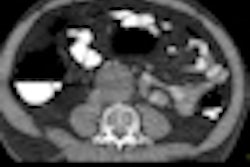Private companies that offer health screening services come under the microscope in articles published this week in the British Medical Journal. The stories warn that customers who visit these firms should be aware of the shortcomings of screening.
Are private screening companies offering services actually of benefit to customers? That's a question posed by Dr. Margaret McCartney, a general practitioner in Glasgow, Scotland.
Although it is legal for companies such as Life Line Screening and Lifescan to offer services such as Doppler ultrasound examinations of the carotid arteries and abdomen, testing for peripheral artery disease, electrocardiography, and ultrasound assessment of osteoporosis risk, their promotion of these services contrasts with the position of the National Health Service (NHS). The NHS introduces screening programs only after in-depth review of the evidence compared to internationally recognized criteria by the U.K. National Screening Committee (NSC), McCartney wrote in her feature.
McCartney cited the U.K. NSC's director of programs, Dr. Anne Mackie, who said that "screening tests should be offered only when there is evidence that their use in asymptomatic populations will produce more benefit than harm." Although the U.K. NSC supports customers' right to buy these services, "offering screening without explaining fully the risks relating to false positives, which can lead to raised anxiety and further unnecessary diagnostic tests, and false negatives, which provide false reassurance, is unethical," Mackie continued.



















